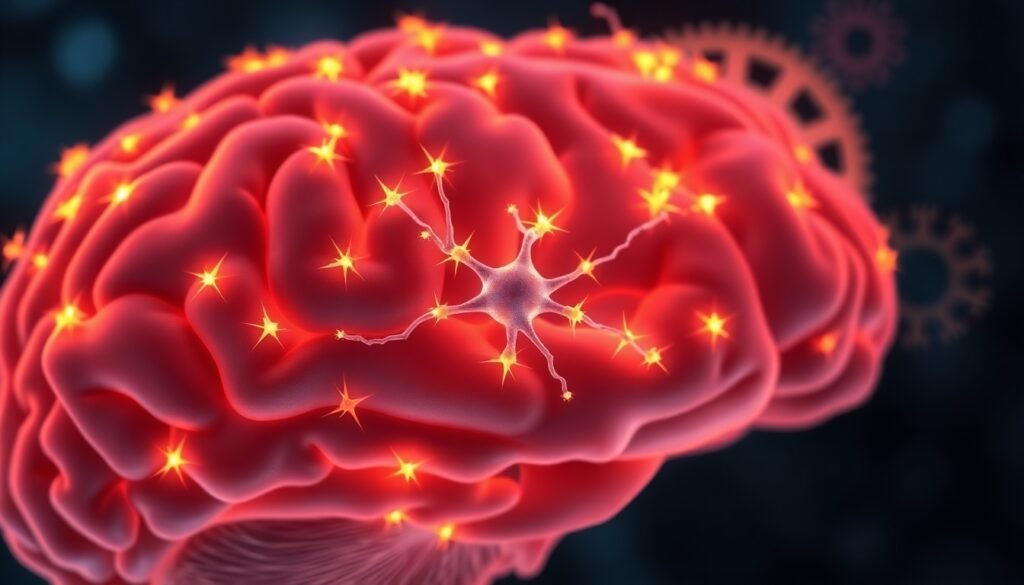A groundbreaking AI study reveals that the language of online hate shares striking similarities with speech patterns found in communities for certain personality disorders. But the connection isn’t what you might think.
In the sprawling, often chaotic digital public square, online hate speech has become a pervasive and destructive force. It fuels prejudice, contributes to real-world violence, and poisons the platforms designed to connect us. For years, researchers, policymakers, and tech companies have grappled with how to combat this toxicity. A central question has always been: what drives this behavior? A new study from Texas A&M University offers a fascinating, and somewhat unsettling, piece of the puzzle by turning to the very language of hate itself.
Using sophisticated artificial intelligence, researchers Dr. Andrew William Alexander and Dr. Hongbin Wang have uncovered a startling linguistic resemblance between posts in online hate speech communities and those in forums dedicated to specific psychiatric disorders. However, the researchers are quick to issue a critical clarification: this does not mean that individuals with mental health conditions are more prone to hate. Instead, the findings suggest a more complex relationship between our psychological states and the digital environments we inhabit, opening up new avenues for understanding and potentially mitigating online toxicity.
Peering into the Digital Psyche with AI
To investigate the potential links between online behavior and psychological wellbeing, the research team turned to Reddit, a platform known for its vast and diverse collection of user-run communities, or “subreddits.” They carefully selected 54 of these communities, categorizing them into four groups: those known for hate speech (like the now-banned r/Incels), those dedicated to spreading misinformation (such as r/NoNewNormal for COVID-19 misinformation), forums for various psychiatric disorders (like r/ADHD and others), and several neutral communities for comparison.
The true innovation of the study lies in its methodology. Rather than simply counting keywords, the researchers employed the powerful large-language model GPT-3 to analyze thousands of posts. The AI converted the text of each post into a high-dimensional numerical representation, known as an “embedding.” Think of these embeddings as a unique digital fingerprint for a piece of text, capturing not just the words used but also their underlying semantic meaning, context, and stylistic patterns. By translating complex human language into these numerical forms, the team could use advanced machine-learning techniques and a mathematical approach called topological data analysis to map and compare the fundamental speech patterns across all these different communities.
A Clear and Troubling Connection
The results of this deep linguistic analysis were striking. The speech patterns found in the hate speech communities showed a strong and consistent similarity to those in communities for a specific group of mental health conditions: Cluster B personality disorders. This cluster includes narcissistic personality disorder, antisocial personality disorder, and borderline personality disorder. A significant overlap was also found with communities for complex post-traumatic stress disorder (C-PTSD).
As the study’s authors note, this connection is psychologically coherent. “These disorders are generally known for either lack of empathy/regard towards the wellbeing of others, or difficulties managing anger and relationships with others,” they explain. The language of hate—often characterized by its dehumanizing rhetoric, lack of empathy, and emotional volatility—appears to create a linguistic echo of the communication styles associated with these specific psychological challenges.
Interestingly, the link between misinformation and psychiatric disorders was far less pronounced. While the analysis hinted at a minor connection to anxiety disorders, the overall data suggested a different profile. As Dr. Alexander clarifies, “I think it is safe to say at this point in time that most people buying into or spreading misinformation are actually quite healthy from a psychiatric standpoint.” This finding helps to separate the distinct phenomena of hate speech and misinformation, suggesting they may spring from different psychological or social dynamics.
Correlation, Not Causation: A Crucial Distinction
It is impossible to overstate the importance of interpreting these findings with care. The study does not, and cannot, claim that people diagnosed with Cluster B personality disorders are the ones posting hate speech. The researchers had no way of knowing if the anonymous Reddit users had any formal diagnosis. The study identified a similarity in language, not a diagnosis in people.
This raises a compelling chicken-or-egg question. Do individuals with pre-existing traits like low empathy and emotional dysregulation gravitate toward hate speech forums? Or does prolonged immersion in these toxic environments actively cultivate these traits and speech patterns? Dr. Alexander leans toward the latter possibility.
“It could be that the lack of empathy for others fostered by hate speech influences people over time and causes them to exhibit traits similar to those seen in Cluster B personality disorders, at least with regards to the target of their hate speech,” he suggests. “I think it is a good indicator that exposing ourselves to these types of communities for long periods of time is not healthy and can make us less empathetic towards others.”
This perspective reframes the issue. The problem may not just be about who is drawn to hate, but about what hate does to those who engage with it. These online spaces may function as echo chambers that erode empathy and normalize destructive communication styles, shaping their members’ language—and perhaps their psychology—in the process.
New Pathways for Intervention
Beyond its fascinating insights, this research offers a hopeful path forward. If the language of online hate mirrors the language of certain psychological conditions, perhaps the strategies used to treat those conditions could be adapted to combat the hate.
This suggests a move beyond the current, often blunt, instruments of content moderation, such as simply banning users or deleting posts. The findings could inform the development of more nuanced, community-based interventions. Imagine strategies that draw from therapeutic approaches—like those used in dialectical behavior therapy (DBT) for borderline personality disorder—that focus on building emotional regulation skills, fostering empathy, and improving interpersonal effectiveness. These could be adapted into online tools or community programs aimed at steering individuals away from toxic engagement.
By understanding online hate not just as a content problem but as a behavioral and psychological one, we can develop more sophisticated and potentially more effective solutions. This research provides a powerful new lens through which to view the digital pathologies of our time, reminding us that the words we use online are more than just words; they are a reflection of, and a powerful influence on, our collective psychological health.



